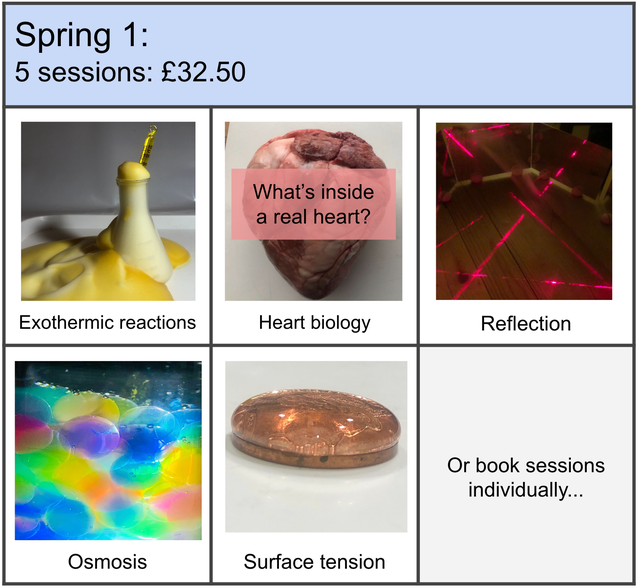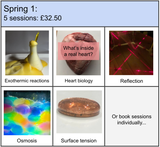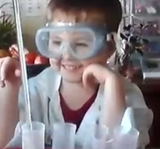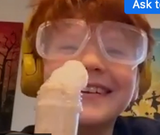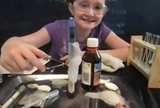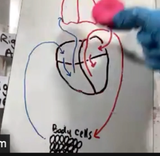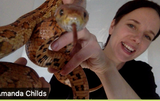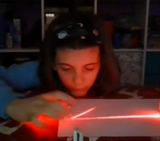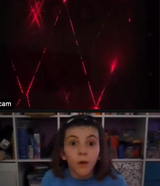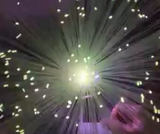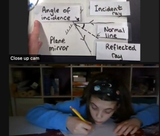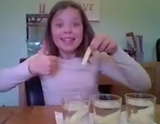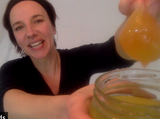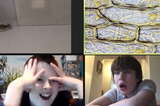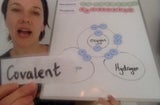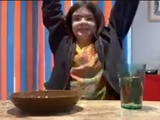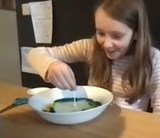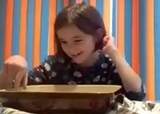- Online STEM
- >
- Spring 1
- >
- Online STEM: Spring 1: 5 sessions
Online STEM: Spring 1: 5 sessions
Exothermic (hot!) reactions (10th January)
Heart biology (17th January)
Reflection (24th January)
Osmosis (31st January)
Surface tension (7th February)
Every Tuesday: 10th January to 7th February
5-8s group: 11 - 11:50am (UK GMT)
8-12s group: 1 - 1:50pm (UK GMT)
11-15s group: 2:10 - 3pm (UK GMT)
(Select from the options at the bottom).
------------------------------------------------------
Exothermic (hot!) reactions (10th January)
Feel the heat as you conduct your own exothermic reaction at home!
+Watch exciting demonstrations!
+The older groups will also learn about activation energy and the different energy levels of an exothermic chemical reaction.
Equipment (To join an entirely optional practical)
It is a good idea to have a whiteboard or paper, pen, ruler and calculator to hand in each session.
- Dried yeast (min. Three teaspoons)
- Test tubes / jars / glasses beakers (take care with glass)
- Pipettes / syringes
- Teaspoon / measuring spoon (as used for medicines)
- Thermometer if you have one (not essential)
- Tray or plate
- Cloth / towel for spills
- Hydrogen peroxide (3%), (sold in most pharmacies / supermarkets). Though it is used to disinfect cuts, it may cause some skin irritation. Supervision is recommended. Do not ingest or inhale. Wash with water if it gets on the skin. See here for further information.
- Eye protection
- Washing up liquid / liquid soap
Links suggest sources of appropriate resources
What might younger students need help with?
Younger students might need help with careful use of hydrogen peroxide (supervision recommended)
------------------------------------------------------
Heart biology (17th January)
Hear your heart beating and see inside a real heart!
+ Make a working stethoscope and hear your heart beating
+ Watch a live heart dissection (lamb’s heart)
+ The older groups will also learn about the circulatory system and structure and function of the heart.
Please note that this session includes a live dissection of real organs
(lamb and possibly cow).
Equipment (To join an entirely optional practical)
It is a good idea to have a whiteboard or paper, pen, ruler and calculator to hand in each session.
- Plastic funnel (around 7cm diameter or similar)
- Balloon (rounded shape + spare)
- Scissors
- Cardboard tube, eg. kitchen roll inner (or silicone tubing / hose piping is better if you have it)
- Duct / gaffa / tough tape
- No heart required! The dissection will be done live on screen during the session for students to watch, but you are welcome to get hold of a heart to join in with your own dissection at home if you would like to.
Links suggest sources of appropriate resources
What might younger students need help with?
Younger students may need support and preparation for the dissection of real organs.
They may need help using tape and scissors carefully and accurately.
------------------------------------------------------
Reflection (24th January)
Discover how light is reflected and how we see!
+ Watch exciting demonstrations!
+ The older groups will also learn about the normal line, lines and angles or incidence and reflection and predict how different surfaces will reflect light.
Equipment (To join an entirely optional practical)
It is a good idea to have a whiteboard or paper, pen, ruler and calculator to hand in each session.
- A bright torch
- At least two small mirrors (ideally square or rectangular)
- A4 white paper and pen (or whiteboard and pen)
- Ruler
- A piece of stiff, thin card (cereal box is perfect)
- Scissors
- Silver foil
- A desert spoon (metal)
- Blue tak / similar
- Ability to darken the room will be helpful.
- Protractor (older groups)
What might younger students need help with?
Younger students might need help with careful cutting and use of scissors.
------------------------------------------------------
Osmosis (31st January)
Extract water from cells and learn how it moves in living things!
+Make water move out of and into cells!
+Watch exciting demonstrations!
+ The older groups will also learn about concentration gradients and how osmosis is affected by solute concentrations in living things.
Equipment (To join an entirely optional practical)
It is a good idea to have a whiteboard or paper, pen, ruler and calculator to hand in each session.
- Potato, peeled and cut into at least 6 “chips”. Approx. 4cm x 1cm x 1cm (as equal as possible in size). Keep wrapped in moist paper before use so they don’t dry out (would also work with carrot)
- Cucumber slices (several), recently cut and covered so they don’t dry out
- Table salt (several teaspoons)
- Teaspoon
- Two jars / glasses / beakers (older groups may like to use more)
- Water
- Measuring jug / beaker
Links suggest sources of appropriate resources
What might younger students need help with?
Younger students might need help with careful handling of water. Cutting vegetables is best prepared beforehand.
------------------------------------------------------
Surface tension (7th February)
Send boats shooting across water by breaking surface tension!
+ Watch exciting demonstrations!
+ The older groups will also learn about the intermolecular forces that cause surface charges and the polarity of water.
Equipment (To join an entirely optional practical)
It is a good idea to have a whiteboard or paper, pen, ruler and calculator to hand in each session.
- Paper
- Scissors
- Pen
- Large bowl or tray of water (take care near electronics)
- Washing up liquid / liquid soap (a few mL)
- Paper clip (regular size, not plastic coated)
- A small bowl or glass
- A 1p coin (other coins would also work)
- Paper tissue / toilet tissue paper (not tissue paper or normal writing paper)
- Pipette / dropper
- Small dish of milk (not skimmed, high fat content essential!)
- food colouring (range of colours if possible)
- Cotton buds / “Q tips” (optional)
- Cloth in case of spills
What might younger students need help with?
Younger students might need help to keep liquids away from electronics and to avoid spills. They may need help using a pipette or dropper if they are not familiar with one. They may need help to change the water in the tray/ bowl.
------------------------------------------------------
Price is for one device (screen) to join for five sessions.
Upon booking you will receive a photography consent form and opportunity to let us know about any Special Educational Needs and Disabilities (SEND).
By booking you are agreeing to read and abide by the Privacy policy, safety and cancellation policies (Opens in a separate window).
